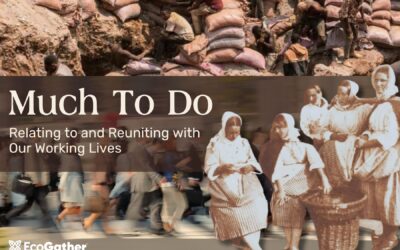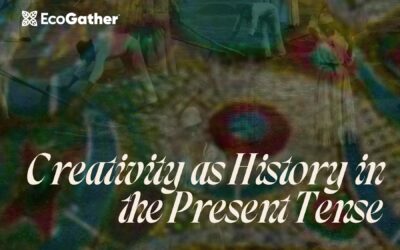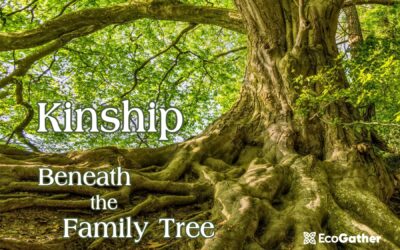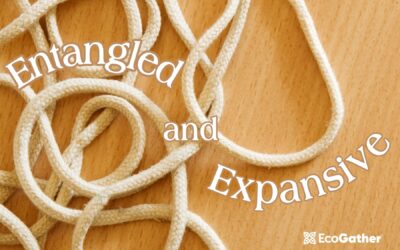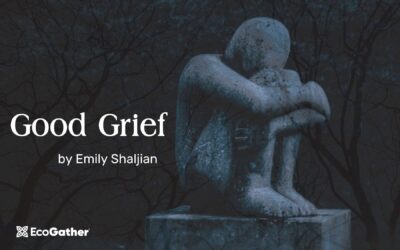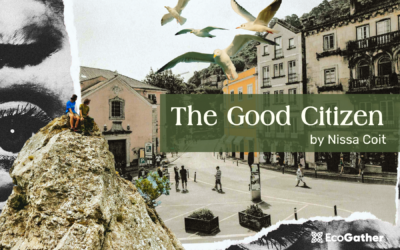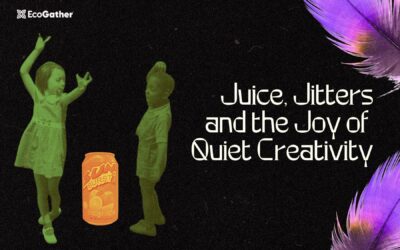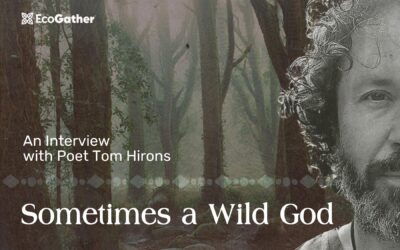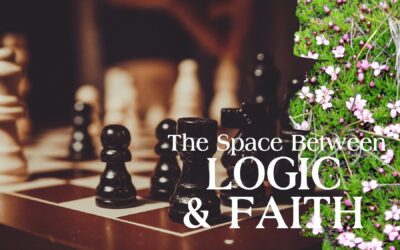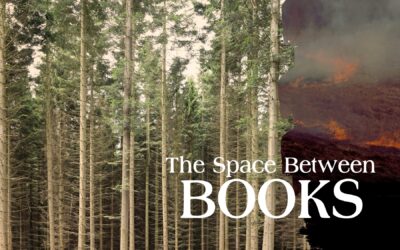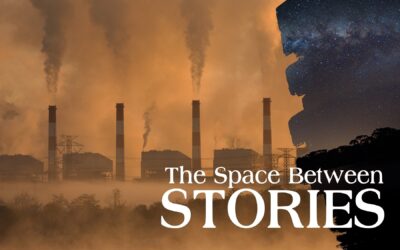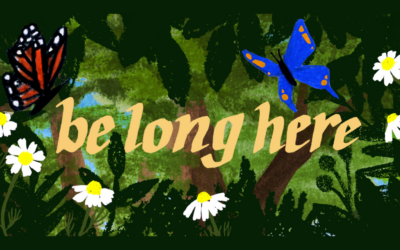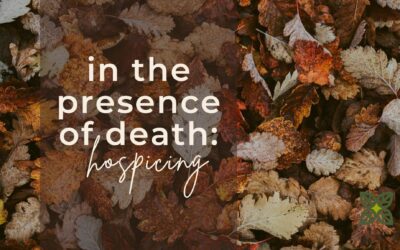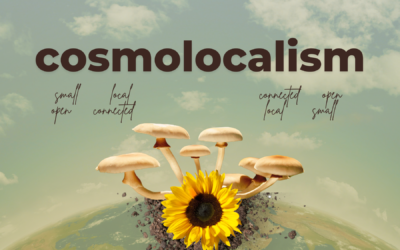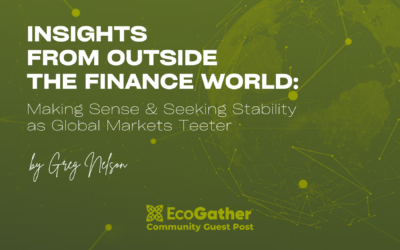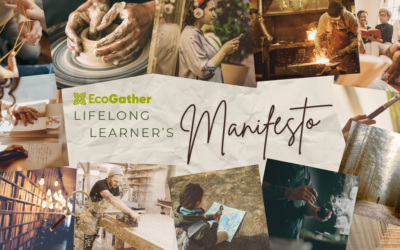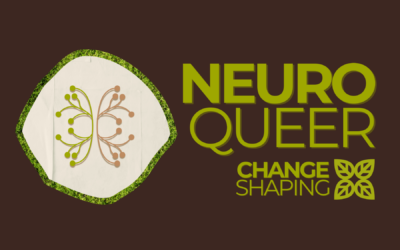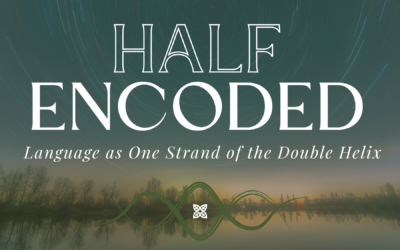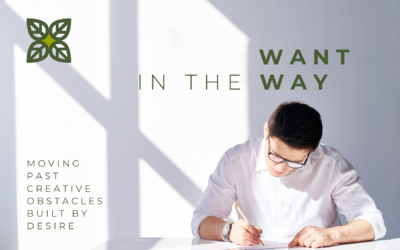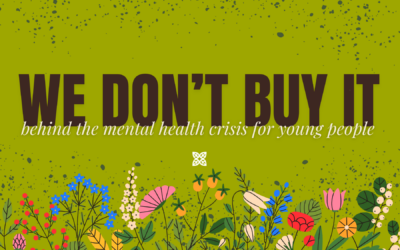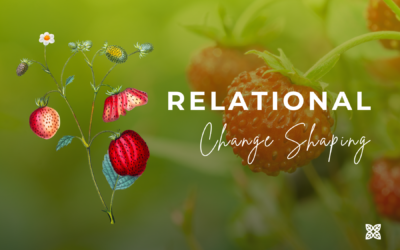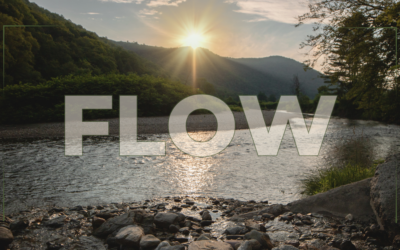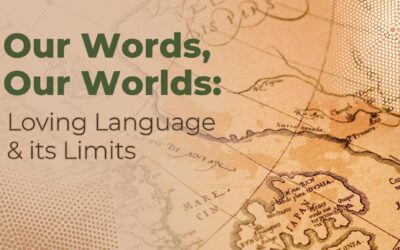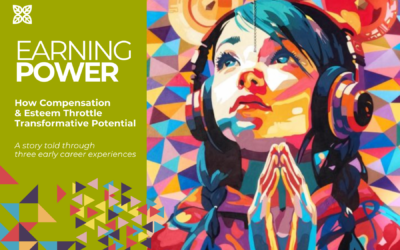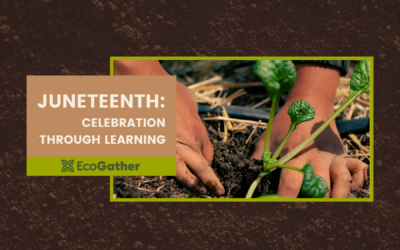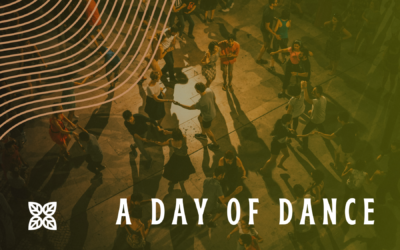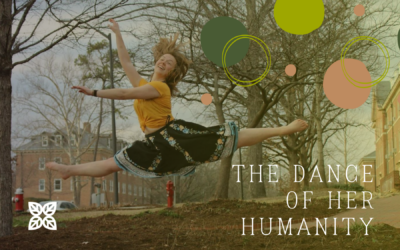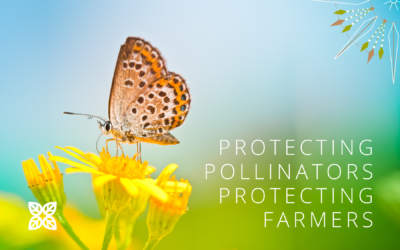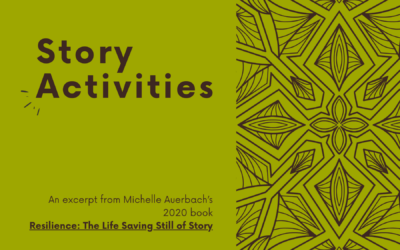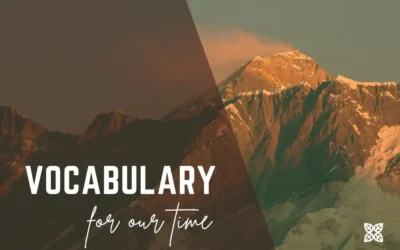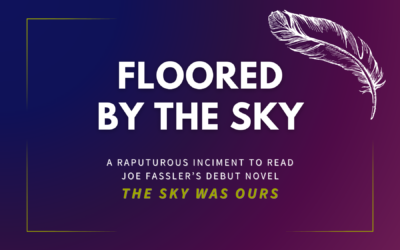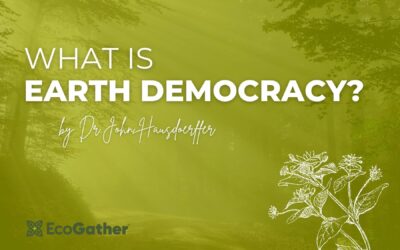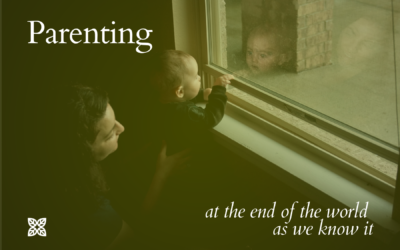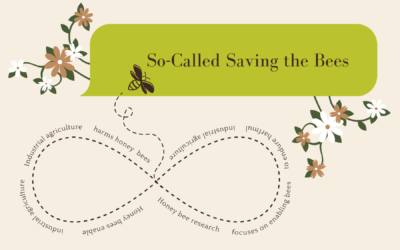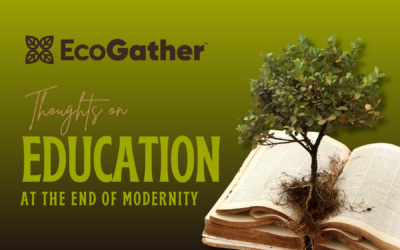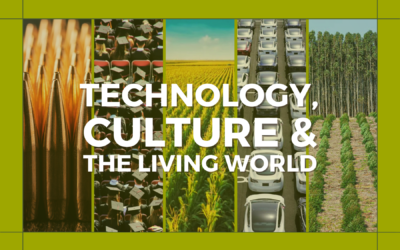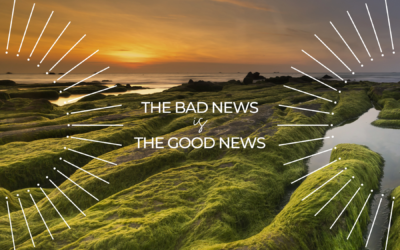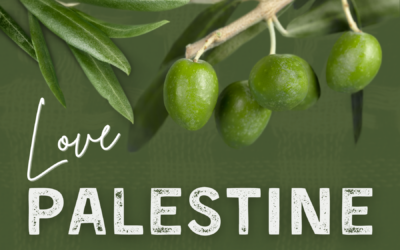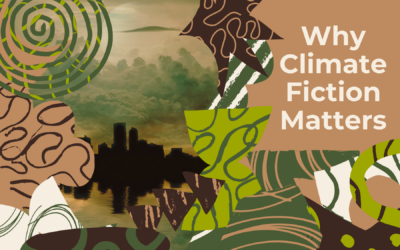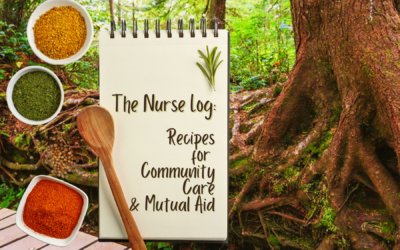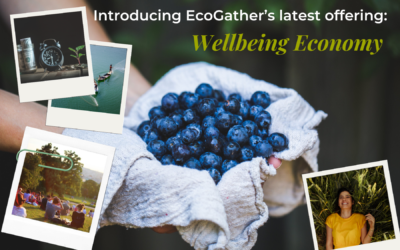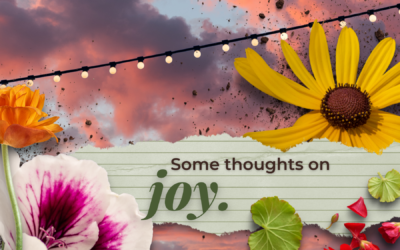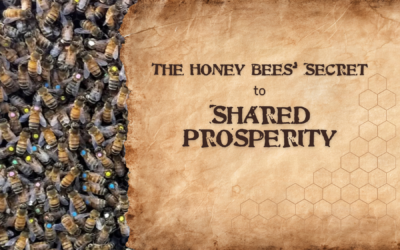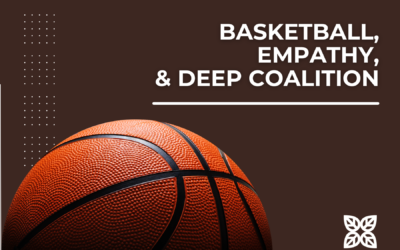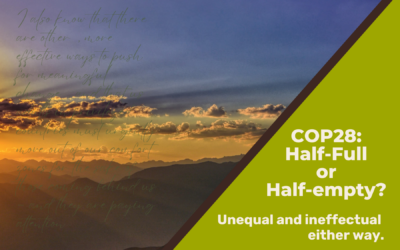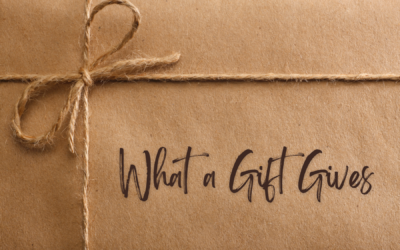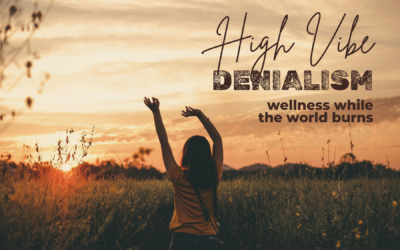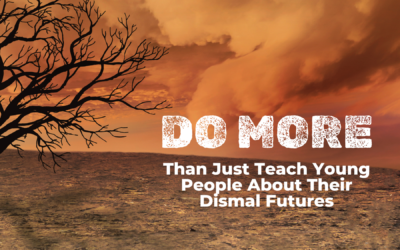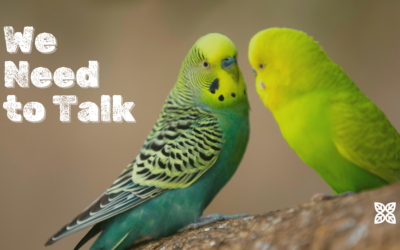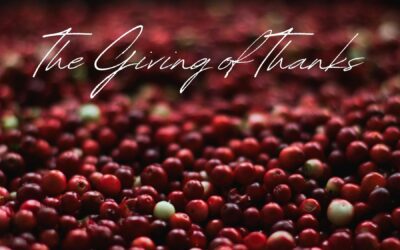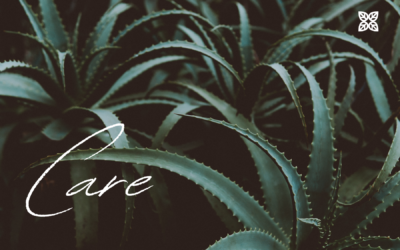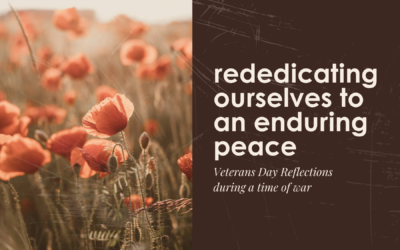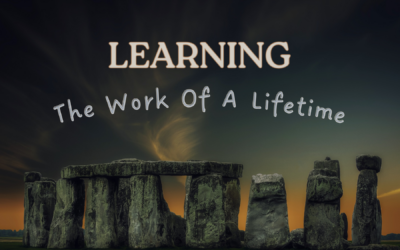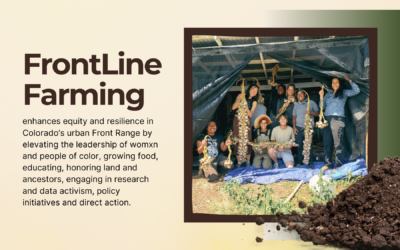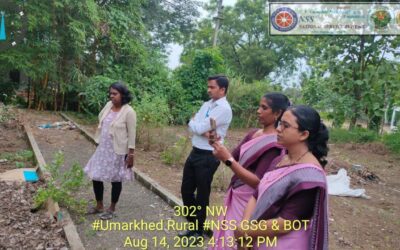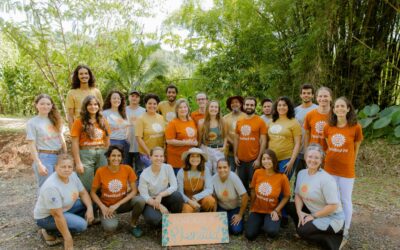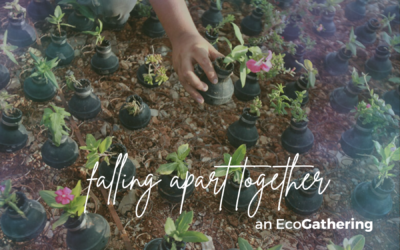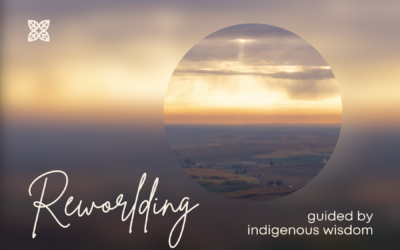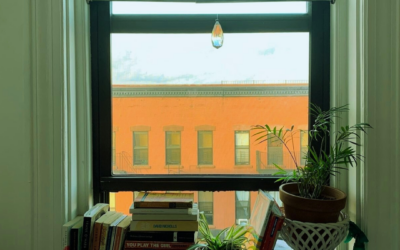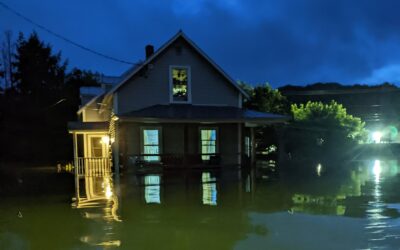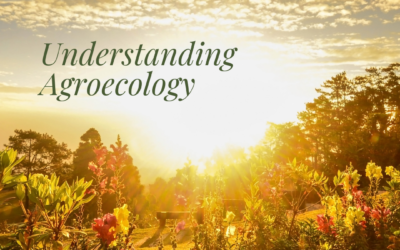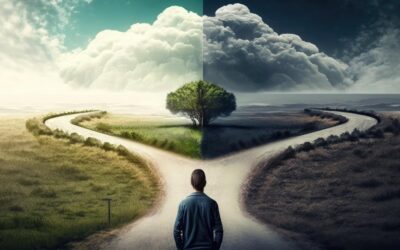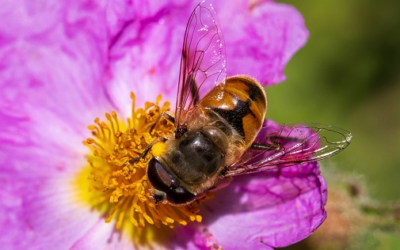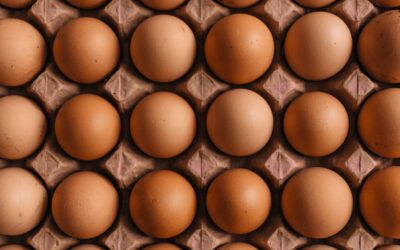EcoGather was active from March 2020 until June 2025. This blog is no longer added to.
Much To Do
Whether it’s the job we work for the majority of our waking hours each week, the unpaid labor we are tasked with doing to meet the needs of daily living, or the dedication we put toward our passion projects, no one is a stranger to work. It is such an important part of our existence, we often think of our days as time spent sleeping, eating, participating in leisure, and working. An assessment of the ways that people spend their time across the world shows that work – paid labor – undeniably makes up a significant portion of the human experience. And the percentage would be even larger if unpaid and therefore often invisibilized care and maintenance activities of daily living were also recognized as work. In a clever capitalist catch-22, we spend so much of our time and energy working, that we never really get the chance to question our understanding of work.
Creativity as History in the Present Tense
Creativity, in this case, was therefore not about art for art’s sake, but for survival. It was about surviving what was happening, preserving one’s identity at a time when everything was being erased, resisting the structures and building new worlds within the crevices of the old one. It was about healing and tending to the wounds of the trauma that came with being dehumanized, uprooted, devalued.
Kinship Beneath the Family Tree
Recognizing our kinship with the life that surrounds us is the first step. Moving into relationship with those elements is the next. As humans, we have an active responsibility to consider our more-than-human kin just as much as we would all the human kin on our family trees. In fact, considering those humans and their futures requires that we actively work to support the living world that they all exist within and depend on. Human kinship is only one nested network in a greater web of interconnectedness with the more-than-human kin that surrounds us. This understanding releases us from the myth of separability modernity relies on to continue its tirade of extraction and exploitation of the living world, and asks us to reassess or re-image our human roles as conquerors, stewards and/or citizens using the lens of kinship.
Entangled and Expansive
We may not be positioned to stop the horrors in the headlines, but we are not powerless. We can protect the territories to which we belong by virtue of our caring accountability. We can revere the relationships we weave. We can take solidarity seriously.
Good Grief
May Good Grief be an opportunity for reunion with the deep love we hold for a living world that is not given the time, resources, or community to be felt after loss. Through witnessing, ritual, and imagining together, may we honor grief as a sacred gift that allows us to maintain our connection to the life that came before us and all the sacred wisdom it holds. My we continue to water these seeds and collectively grow our garden of grief into a space that can provide the nourishment to carry on life and love after loss.
The Good Citizen
I came of age in an era when good citizenship was typically conflated with conscious consumerism or the impossible-under-capitalism aim of ethical consumption. Was I just “voting with my wallet!” because the representative electoral democracy I supposedly live in is captured by lobbying on behalf of elites? Could it really be that, even among the working class, the only way to be a “good” citizen is to have enough wealth to shop at the farmer’s market, donate to charity and have spare time to volunteer? All my good deeds started to seem like a desperate attempts and poor substitutes for participating in activities that would actually effect change, prefigure the world I want to live in, or to align my actions with my values. Familiar?
Juice, Jitters and the Joy of Quiet Creativity
Creativity is far more expansive, more all-encompassing, more alive than the narrow box we try to fit and force it into. In fact, creativity isn’t even something we do. It is a fundamental part of who we are. It is the very essence of life itself. The mere act of the Universe unfolding into existence is creativity. The way the earth spins and the tides rise and fall with little commotion, the way the sun rises and sets, the way a plant reaches for the light, bending toward what is possible, all of it is creativity in motion.
Sometimes a Wild God – Interview with Poet Tom Hirons
I think of poetry as truth spoken with power. That function to speak truth; to find ways of speaking truth that make the subtle focus of reality sing, doesn’t really change over time. There are also calls to speak what is unspoken, to name what is in front of us, to say things about the emperor’s new clothes in whatever way that might be, to unmask denial, to build stepping stones or bridges or ladders from one place to another – to begin here and to move there in such a way that other people can make that journey as well.
The Space Between Logic & Faith
When I sit down to write a book, it is faith that keeps me at the keyboard, not certainty. Certainty would end me up with a very boring, predictable story filled with wooden characters living in a stage set world. When I reach out to a friend, it is faith that helps me listen with curiosity and share myself back. I don’t know what story we are writing but I know that it matters. What we lack when we are certain is the vibrancy and the intensity of experience. I want that, even if it means I am never on solid ground.
The Space Between Books
This past spring I published my first book, a novel called “The Sky Was Ours” that took me more than a decade to finish. For a few more weeks, as I finish out a run of events and promotion, I’ll be too busy to face any larger existential questions about next steps. But I can already sense what’s coming after: stillness. Suddenly, it’s going to be very, very quiet. And then — I’m bracing myself for it already — I’m going to have to make some tough decisions about what to do with the next phase of my life.
The Space Between Stories
As complex systems slip into a state of involuntary retraction and decline, things that once seemed solid start to crack open and come apart. When we peer into the cracks, we realize that they are portals. To enter, one must first release their tethers to the dominant cultural paradigm – a single, stale, synchronizing story – that hitches progress to inequality, entrenches emiseration, and has brought us to the brink. Letting go before it carries us where we are otherwise inexorably headed does not guarantee ease or salvation. But does leave us in proximity to possibility.
New space is opening between stories.
Be Long Here
Although EcoGather exists and operates primarily in virtual spaces and relies upon digital community to connect across cultures, geographies, and lifeways, we often long to presence ourselves more in the spaces that we inhabit. We hold gratitude for the ability to connect through computers with a craving for tangible presence. To better balance this, we’ve been emphasizing art as a means of manifestation. A way of communicating in a less lexical manner, a way of getting to the emotional undercurrents of our work together, a way of bringing our collective imaginings and aspirations to a shared visual field.
In the Presence of Death: Hospicing
The very fabric of modern human life as we know it was built on death – so much needed to die in order for this current form of modernity to exist. So much continues to die so that modernity can exist – the newest technologies and comforts the West insists are necessary to civilization and progress rely directly on ecocide and genocide. With this knowledge in mind, any reluctance to accept modernity’s long-overdue death comes wrapped in a sheet of denial, woven by threads of guilt and a subconscious understanding of one’s own complicity in harm.
Cosmolocalism
Imagine a global network of mutually supportive local communities making mindful and appropriate use of digital, information, and communication technologies to share and exchange the non-material resources that can and should flow freely around the globe: knowledge, ideas, practices, skills, innovations, and culture. Material resources – tangible things – are sometimes exchanged among and between them, but only to the extent socially and ecologically sustainable and not primarily for the purpose of making a profit. This arrangement offers an alluring alternative to the kind of totalizing globalization that drowned out local cultures and subsumed place-based economies into a homogenized global system that extracts, exploits, and erodes the planet’s life supporting capacity.
Insights from Outside the Finance World
Beginning on Friday, August 2, 2024, global financial markets took a dramatic turn that has impacted both the high-flying US tech stocks and markets in countries around the world, particularly in Japan. Many people—avid market watchers, lay investors, and collapse-attuned folks scanning the horizon for signs of worsening instability—are wondering what is happening here. I’m someone who falls into all of those categories, having been concerned about collapse before the Global Financial Crisis of 2007-2008 and watching the markets quite closely ever since, but only in a non-professional capacity. I became a member of the Sterling EcoGather community through the “Surviving the Future” courses, and have been coming here regularly to connect with others who are similarly concerned. While I claim no insight into the future, I have been able to identify a number of factors at play here that are worth noting and connecting. Additionally, while I may not be privy to the kinds of inside information available only to those who organize their entire lives and careers around finance, I am well-read on this topic, practiced in seeing the connections in complex systems, and capable of bringing a collapse aware perspective to current events—something that most financial commentators lack.
A Learner’s Manifesto
Liberation, freedom from oppression, and social justice demand of us an awareness of justice and inequality, a deep and thick empathy, and actions that organize, resource, and shape change. All of these are learned skills. We learn them from each other, from our ancestors, and from our history. We learn by taking risks, finding brave spaces, and by listening. The outcomes of this kind of learning are wellbeing, hopefulness, and optimism.
Neuroqueer Change Shaping
Our stories allow us to connect with folks – be it around food systems, the environment, or creating a brilliantly neuromixed world. They make it possible to feel each other’s experience. Stories usually solve more than one problem at a time – and in this case that means they can connect people with different experiences at the same time as they create a world we want to live in or even can live in for longer. They help us look in two directions at once. We are looking backwards to gather the seeds we will plant that will grow to be a world we want to inhabit in the future. This is a different kind of activism that I feel could both grow out of a neuromixed world and grow into one. Worldbuilding is not agitating for or against anything – it is the creative endeavor of moving together into the future. Something that neuroqueer folks have always had to do.
Half Encoded: Language as One Strand of the Double Helix
In a culture as obsessed with speaking – and feeling heard (which isn’t the same as being listened to) – as ours, it’s no wonder language first felt like a slinky to me. The fragile single helix was slinking and moving out of control, taking on the form of the plastic branding of the consumerist culture we live in. What looked like a single helix was actually a broken strand of DNA, the helix of speaking, expression, language ripped from its pair: listening.
Want in the Way
I remember thinking of myself as a kind of sad magician, one who had spent years pulling a rabbit out of a hat in front of a live audience. I myself didn’t know how the trick worked; I only knew that when I reached into the hat, I’d always feel the heat of a huddled body, those restless ears, that reassuring scruff of fur. So I counted on the rabbit to be there. But one day, nothing. When I reached my hand inside to do the trick, I felt only the hollow of an empty hat.
We Don’t Buy It: Behind the “Mental Health Crisis” of Young People
We are here. And like any generation before, we cannot chart a new path forward without the support and wisdom of our elders. But we cannot do it with our elders unless you help us face and change the realities in which our young minds and bodies and spirits can no longer survive. We need you to start asking with us: what does thriving—REAL thriving—look like? What can it look like if we are brave enough to imagine new worlds, and then to build them, together, in the shell of this broken one?
Relational Change Shaping
We see change as a paradigm shift – a new way of thinking and seeing the world that breaks down the old systems and builds up more relational, more humane, and more collapse-responsive ways of being. Good ideas are not enough. To truly make an impact, we need to find people and build communities and coalitions – but how? That need to create connection and build bridges is THE work of change shaping. It is the heart of finding, making, and inhabiting a world in which we share care and build alternate futures.
FLOW
A year to the day.
The waters fell, the waters rose. Again. Boundaries breached. Again.
Imbalance seeking its own resolution. The atmosphere holds what it can. Then water finds its level. Pulling banks into beds, collapsing edges, toppling centuries of habit and habitation, exposing roots. These waters, misplaced and muddy, overwhelm our profuse, precious human lives.
Our Words, Our Worlds: Loving Language & Its Limits
At every turn, language distills a direct experience of the world into pre-digested sound bites, transmitting to me in a moment what took my ancestors an impossibly long time to discover for themselves.
Language-based learning makes an incredible amount of understanding possible, and it is tempting to believe that this can replace our first-hand experience of building relationships with the living world.
It cannot.
When was the last time you sat still and knew another person, another creature, a place, or your own body, without the mediation of words?
How shall we reconcile the deep and sacred well of language with the terrifying speed at which it allows us to simplify and commodify the deep and sacred world?
Without stillness, there can be no knowing.
Earning Power
As the mountain of modernity erodes around us, we’ll need the actors, and the public health workers, and the engineers, and the countless other people with varied skills and passions. But we’ll need their efforts redirected. We won’t need the money-making bits of us – the parts that we are told are “marketable” or “successful.” We’ll need the powerful parts, the messy parts, the parts that threaten the savage structures of legacy systems, and the parts that can salvage the best bits of the past and present to restructure and resystem and reworld. I think we will find that those very same parts are the parts that make us human.
Juneteenth: Celebration Through Learning
By now, readers likely know that Juneteenth commemorates the day upon which exuberant freedom celebrations officially reached Galveston, Texas. On June 19, 1865, General Granger brought news of emancipation — and the power to enforce the liberatory law — to the hold-out state of Texas, which was the last jurisdiction in the 10 state Confederacy to surrender. Certainly, this was a change well worth celebrating. Certainly, the project of liberation — a project that requires our collective collaboration — is far from over.
A Day of Dance
If you’re not scrutinizing the phenomenon, you might think that being an audience member is a largely passive activity, with only punctuations of active participation: a laugh, an applause, perhaps a standing ovation. I think this gets the relationship all wrong. Performer and audience is much like the relationship between speaker and listener. Contributing well to an audience requires presence and bravery. You have to let the performance change you, like rock carved by the river. And in turn, the small flecks of rock change the river, giving part of herself to the ground below the river, joining more deeply with the river. The rock and the river’s give and take, push and pull, listen and speak, is a dance.
The Dance of Her Humanity
Some of my fondest memories include shimmying vigorously alongside my wackily gyrating friends. Those memories are so dear to me because I find an unabashed dance to be a sliver of humanity: the poetic juice of a person comes out in movement in such a sincere, colorful, flavorful series of twistings and flailings and side-steppings that I can’t help but learn something intimate and unique through observation. And there is no wrong way of dancing. All dance is emotion. And every emotion is valid.
Protecting Pollinators, Protecting Farmers
If Governor Scott really wants to protect farmers, he would work with the legislature to phase out neonics over a very short period while also providing financial support, education, and and incentives to help farmers who had been relying upon them to transition away from high-input, extractive and degrading agri-industrial systems, towards lower energy, lower input, and more sustainable systems that maintain resilience and self and community based sufficiency.
Story Activities
All of our learning, our ability to change, our empathy and connection to other humans, and our ability to live a good life, comes from storytelling and listening. All of the skills we need to be resilient in a crisis we learn through story, and all the skills we have that we need to share with others we share through story. Story mediates our world and ourselves in ways that increase our adaptability and improve our world. It’s not complicated. It already lives in our brains, bodies, and minds and we can access it through a little practice and some remembering of the skills we all had as children. Once we get fluent in storytelling and story listening, we are able to adapt, learn, teach, share, understand, and cope in ways that will allow us to move with change and lend a hand when the people around us are not moving. The process is available to all of us; it transforms us and our lives and can save the world.
Vocabulary for Our Time
Like a mountain, our complex, and mostly monolithic modern civilization was formed slowly over time, and then all at once like a volcanic eruption. Even as parts of it continue to grow and complexify, other parts are being weathered away. Occasionally, large chunks are shaken loose. Reducing the height of our civilizational mountain is inevitable. No matter what, it will eventually stop growing altogether, and both the gradual and punctuated crumbling that is already happening will become more prominent. Even if we spend all our energy stacking up cairns to try to preserve the height, we will not match the pace of the weathering. What’s more, staying high up on the mountain, attempting to construct cairns out of the rubble will not put us in a better, safe position. When things start to fall, how high up do you want to be?
Floored by the Sky
Floored. By a book that takes us into and across...
What is Earth Democracy?
Few democracies in history have lasted. As Thomas Jefferson imagined the fledgling U.S. democracy in the 1780s, he feared that a disconnection from the land would lead to a dependence on social hierarchies, and thus an erosion of place-based, self-organizing practices that made democracies on all scales possible. “Those who labor the earth,” Jefferson mused, “are the chosen people of God.” Two centuries later, Cesar Chavez said, “we are not beasts of burden, agricultural implements, or rented slaves; we are men.” Chavez also understood that a healthy democracy came from a combination of (just) human labor on the land and a connection with environmental health. He understood the interconnectivity of human and more-than-human rights, stating that “kindness and compassion towards all living things is a mark of a civilized society.”
Parenting at the End of the World As We Know It
On the drive here, NPR told us about that a lethal heat wave in West Africa and provided anti-reassuring advice about how to reduce the risk of boiling your insides. I felt the vibe in the car shift and heard my 12 year old mutter, “Those who contributed the least face the worst.” I beamed a little and felt my heart swell just a bit. Then I caught myself: Sure I’d rather they have a climate justice lens on the world than not… But I’d really rather that they didn’t need to. My kids could do without their professor-mama giving them yet another lecture on climate breakdown, so I quipped about how I wouldn’t mind a heatwave of the non-lethal variety and was longing for some spring sunshine.
So-Called Saving the Bees
I couldn’t devote my life to slapping bandaids on problems rather than stopping the bleeding. At first, I thought maybe it was just this field, but the more I looked, I realized this pattern existed in all the nooks and crannies of our culture, in almost every aspect of our lives. The way we work, learn, consume, and even help each other. It feels like some sort of vaudevillian sketch, or something out of Mr. Bean. The more we try to fix the problem we have created (or try to cover it up), the worse we make it, until it becomes an irreparable mess, that we would have done well to just stop trying to “help” by changing course from the very beginning.
Orienting Questions
How might we be complicit in sustaining the...
Education at the End of Modernity
We know that we cannot expect to enjoy the stable and enabling features of the Holocene climate in and beyond the 21st century. Similarly, we cannot and should not presume the continuity of existing dominant socio-economic systems. Steeping current and rising generations of students in outdated stories and training them to operate effectively within breaking systems causes more harm and betrays our duties as educators and mentors. It is neither wise nor ethical to prepare young adults to do well for themselves (even in the very near term) within systems that undermine the conditions necessary for biophysical survival and stifle all hope of mutual flourishing.
Technology, Culture, & The Living World
We have to stop taking our technologies for granted, and we’d better start asking a whole lot more of them. If a technology does not tend to make life more sustainable on the order of tens of thousands of years, we must realize the importance of regulating or limiting its usage.
The Bad News is The Good News
Imagine going through your day knowing that everything you do, everything you make, every human gesture, is contributing to making our only home a livable home for all living things, present and future. Imagine the joy that could exist in your lifetime, knowing that you are part of a collaboration of humans bringing a new economic order and new, relational cultures into existence for the next generation and the many to come.
LOVE PALESTINE
We’re asking ourselves what it might mean to truly love Palestine. To love the land, to love her people, to love her more-than-human inhabitants. With ragged voices, we’re wondering out loud and in public about how we might summon and practice a radical politics of love and take steps that make it possible for Palestinians to feel and be protected by our love. As we do so, we remind each other that love is abundant. It defies and even subverts scarcity. Loving Palestine does not and cannot reduce our capacity to love other people — including Israelis and Jews around the world. Love can only multiply. And it may be the only thing that we should seek to grow without limit.
Why Climate Fiction Matters
It’s counterintuitive, but it’s a reality of the human psyche: sometimes stories that should shake us into action only numb us further. When the evidence becomes too overwhelming, we can shut down and refuse to act. Yes, the situation is grim. And because journalists labor in the service of a single, all-important question—what’s true?—it’s their job to render this grimness as it really is. Still, that’s not the only story we can tell, and it’s not the only story we need. We also crave narratives that pursue a different question altogether: what if?
The Nurse Log: Recipes for Community Care
Recipes for community care can be exact measurements of ingredients but it can also be sampling what tastes good together. The most important thing is that we approach the recipe with love and put as much of our care and heart into the outcome as we can at any given moment.
Introducing EcoGather’s latest offering: Wellbeing Economy
I never thought I would like economics. And I certainly never thought I’d design a whole course of the subject. I thought econ was for people in suits, people who cared about finance, people who saw the nonhuman world as nothing but a pool of resources to exploit. It turns out, however, that the version of economics we usually study in classrooms is not the only version out there.
A Farm Grew in Brooklyn
So when I finally went back – February of 2024, Aquarius season, about five years since I left – I planned on taking videos of beds resting, weeds falling back, garlic growing patiently under mulch – I had cleared the storage space on my phone. I would record that same walk down Kingston, pan to the smokestacks, round the corner as the hoop house came into view. Maybe open the gate, point out where my beloved broccoli used to grow. Surely the picnic tables would still be under the tree, albeit with fresh paint. But as I walked closer, I noticed tall, opaque, dark green fencing blocking the view. I kept walking in search of an opening. But it never came. Instead, through a torn hole flapping in the wind, I saw…nothing.
Some thoughts on joy.
“I didn’t think about joy too much until January 31, 2020. It was the day my roommate in Brooklyn, upon walking through the threshold of our fourth floor pre-war apartment in Bushwick – old scuffed floors, funny little entryway in which we hung a tiny disco ball, about ten inches of counter space occupied almost entirely by our always-full coffee pot and a rickety fire escape outside that was likely more of a hazard than any actual fire – sweaty from the gym, announced she had just listened to the best podcast episode on delight while she was on the treadmill. She thought I would like it; the guest was a gardener and a poet. That was, generally, my deal.”
The Honey Bees’ Secret to Shared Prosperity
For my purposes, I tend to define, or at least explain, eusociality as: cooperative intergenerational care of those in a group upon which the individuals comprising the group rely. Individuals in a eusocial group are necessarily reliant on the group for their own survival, and therefore put the needs of the group (both current and future) before their own. In most animal groups, this will be genetically related individuals. But we inventive, poetic humans might define our groups more broadly. For example, as chosen family, geographically local community members, an intentional living community, online affinity groups, or even all the human and more-than-human beings on whom we depend for survival.
Why Climate Literacy?
To be climate-literate requires a basic understanding of the science behind the present climate and ecological crises, of how science ‘works’, the social/political/economic causes of these and allied crises, and a willingness to continuously learn about the existing and rapidly evolving science and practical responses to these crises. It turns out that this is very difficult to do on one’s own because there are few practical avenues through which busy adults can access reliable, integrated information and empirically-based and justice-informed analysis about the climate and allied crises, and how to meaningfully respond to them. As a result, most people whom I engage with on climate have an overall sense of doom and helplessness, like there is nothing meaningful that they can do about it. This feeling is totally understandable. It, like the worst-case scenarios of climate breakdown, is also avoidable.
Basketball, Empathy, and Deep Coalition
The “how” of thick solidarity, of meaningful coalition building, of showing up for people even when there are ways you will never fundamentally agree is one of the big questions of movement making. And answering it is like answering the question: How do you know how to fall in love? or How do you know how to develop a friendship? It involves some qualities we can name and then a factor of willingness and openness and the ability to be honest about goals, beliefs, and motivations. There is an element of mutual aid, and a bit of goal oriented healthy self awareness. But most of all there is empathy. Thick Empathy.
Mindfulness & Watermelon Dal for the Scatterbrained Girlboss
When I find myself feeling overwhelmed by the state of the world, uncertain personal and collective futures, things not within my power to change, or sad that instead of doing art, dancing around a fire with my tribe, spending time with friends and family, I have to instead work for a wage, shop for insurance, or go to the grocery store, I breathe and try to focus my spotlight on chopping a tomato, or vacuuming with my whole being. To appreciate the weird beauty that is the curated aisles of the grocery store (while still being critical of them). And be grateful that I am able to. And sometimes, magic and art and childlike creativity, and ceremony creeps in anyway. And I get to live real life in that moment.
COP28: Half-empty or Half- full? Unequal and ineffectual either way
So the verdict on the outcome of COP28 depends a lot on framing- whether you are the sort of person who sees the glass half empty or half full. A lot of that framing will depend on your own positionality in the world. Personally, as a scientist who trusts scientific consensus, I still feel culpable, like we somehow haven’t communicated the science and the urgency with which we need to act on it clearly enough. But I know that the motivation for the collective inaction and dithering of my and older generations is much more complicated than that. I also know that there are other, more effective ways to push for meaningful change, and that us adults in privileged countries must urgently move out of our comfort zones for the sake of those coming behind us – and they are paying attention.
What a Gift Gives
A gift is a recognition of plenty, of having enough to share. Or maybe it’s a recognition of need. I guess it depends, and I guess maybe it’s both. It’s the constant matching and mismatching, the commitment to place and time.
High-Vibe Denialism: Wellness While The World Burns
I’ve even encountered this sort of denial face to face: on my last day of teaching at my former college (though I didn’t know it at the time) an acquaintance placed her hands on my shoulders and said “Oh Heather, don’t worry. It isn’t our fault. I’ve been doing deep spiritual work for 10 years now, and the climate is changing because our solar system is passing through negative energy.” This is a person who was an environmental activist and had been tear-gassed and kettled by police in riot gear at one protest.
We Must Do More Than Just Teach Young People About Their Dismal Futures
However, this is exactly what I found myself doing after 25 years of teaching geology, earth systems, and climate science. What was abstract and interesting at the beginning of my career, over time became increasingly dissonant with what was not happening politically in order to prevent climate and ecological breakdown. Teaching young people about the climate system and its human-caused breakdown while they do not have the agency to stop it, while we scientists and educators plod along in our (mostly) secure lives and jobs, is morally problematic.
Education for a World in Transition
Our educational system ought to be built around a nuanced understanding of ecology, earth systems, and our place within them. Would we be facing the intersection of human and geologic time in the form of climate and ecological catastrophe right now if government and business leaders had earned degrees in Human Ecology? Or Earth systems? If they had to, as part of their formal education, learn how to grow organic food and care for farm animals? To harvest or slaughter, store or process, and cook that food for their community? To live in and be accountable to a community? I doubt it. Because every policy or business decision would have to be made in the context of living on a physically finite planet, informed by real, face-to-face interactions with humans, other animals, and the living systems that enable us to live here.
We Need to Talk About the Climate Emergency
As we go about our daily lives as privileged people in rich countries, most of us don’t spend much time thinking about the climate emergency, let alone talking to friends and family about it. The problem of the climate crisis is so big, so all-encompassing, and the causes of it so intimately tied to the neoliberal socio-economic reality that we live in and have grown up in, that we cannot imagine a way out. So most of us just don’t talk about it- especially not to our families or associates. Especially not during the holidays. But we need to. We MUST.
Why Should We Trust What Climate Scientists Tell Us?
Misinformation spreads faster on social media than the coronavirus spreads through a crowded room, and it can lead to poor decision-making by individuals and governments that then affects entire communities and even the long-term viability of life on this planet as we know it.
The Giving of Thanks
If I’m absolutely honest with myself, this long weekend still is a treasured time. It offers much-needed space to enjoy several of my favorite things: creative cooking for others (with at least some foods we grew from seeds we keep), a luxurious stretch of slow days filled with reading, snuggling, game-playing and leftover remixing, and giving voice to our gratitude. But that’s not something that feels safe or even sensitive to say anymore. In fact, I’m not even sure how the hell I’m supposed to refer to today.
Climate Education for the Adults in the Room
Returning the Pie Plate
The more I thought about it, the more the disposable pie plate felt sad, more a sign of alienation, loneliness, and impermanence. The sort of feeling I get when I remember that we produce food via the exploitation of others in faraway places whom we never have to meet, never have to look at in the face, in the eyes.
What is Care?
One definition of care is that it comprises all the support and attention we need to make our world. Care maintains and contains and repairs the broken world in which we live and love and have our beings. Care is the spiritual, emotional, intellectual, and physical capaciousness that lives at the heart of making and remaking our world.
Rededicating Ourselves to an Enduring Peace
Think of those who serve the cause of peace, honor their lived experiences, and dignify their dedication. Let silence and stillness remind you of what peace might feel like. Let it remind you that peace is possible if we rededicate ourselves to it.
Learning: The Work of a Lifetime
Even if we have an inkling of the impact we wish to have, the path ahead is unlikely to be linear or easy to trace. As we collectively face intersecting ecosocial crises — and recognize the need to exist as part of nature and in ways that promote equity and mutual thriving — we cannot be certain of what we’ll need to know in the future. Why, then, do we expect young people to invest so much time in their education without first the chance to explore their identities and figure out what broken parts of the world they most want to repair? And why do we expect older people to grapple with a changing world in isolation?
Surviving the Future: The Deeper Dive 2024
And then — the most important part — we get to talk it all over together, as we deepen into our months and friendships together — our hopes, our dashed aspirations, our grief, our longings, our commitments, our fear, our aliveness. With eyes fully open to the predicament that our times represent (and an understanding grounded in the late David Fleming’s work), we get to find our way to meaning, together.
Partner Spotlight: FrontLine Farming
FLF offers practical workshops about farming, seed saving, composting, mycology, apiculture, natural dying in accessible, stage-appropriate ways to community members of all ages – toddlers-through-elders. They restore knowledge of medicinal herbs and plants that support preventative approaches to taking control of one’s own health through workshops on topics such as growing your own herbs, the endocrine system, digestive system herbs, and medicines of Black captives. Additionally, FrontLine provides food justice lessons about systemic apartheid-like conditions within food systems. Finally, language justice is prioritized at FLF, which provides interpretation for each public class and public meeting in Spanish, English, and other languages as needed.
Partner Spotlight: Maati-Paani-Asha = Soil-Water-Hope
Living soils and well-managed, clean water are essential for bringing hope to a part of the world that didn’t benefit from colonialism, capitalism, or globalization and is already experiencing intense climate impacts. The Maati-Paani-Asha Center at Gopikabai Sitaram Gawande College (MPA) aims to address the challenges in and around Umarkhed, India by modeling and supporting a transition to agroecological farming practices that regenerate soil, water and hope, increase food access and provisioning, improve food marketing practices, coordinate community infrastructure improvements, and disseminate novel psychosocial supports.
Partner Spotlight: Plenitud PR
Plenitud’s founders were young – they followed where their interests pulled them, they experimented, traveled, studied, and discerned what they wanted for themselves and their world. Mentors showed them the way. Soon, they began to sow seeds. Slowly, their network grew, their farm grew, and so did their impact.
Falling Apart Together
“Neither a blog post nor an email nor a playlist nor some poems will bring back the dead or create safety for those in harm’s way. It will not change the course of geopolitics or the hearts of the power-obsessed. It will not bring an end to apartheid or war. But it might help us hang on to compassion and moral clarity as conflict contorts into genocide. It might let us fall apart together and reassemble the pieces of our broken hearts into something new. Something more capable of bringing the other worlds that are possible into being before it is too late.”
On Indigenous Peoples’ Day:
“In a brutally colonized world, indigenous thinking offers vital possibilities for reawakening, realigning, and reimagining. Restoring and re-storying. Yet, even as we honor and are inspired by indigenous ways of knowing, being, and belonging, we also try to resist the tendency toward abstraction. It is important to simultaneously open ourselves to the world-saving potential of indigenous knowledge systems, values, and lifeways, materially support the well-being of indigenous peoples around the world who are protecting, preserving, and evolving their cultures despite fierce and ceaseless challenge, and resist attempts to further erode the sovereignty of indigenous peoples near and far.”
Floods, Tumors, and The Cat
Because despite everything, Lucy the cat suddenly matters more than anything in the world. I need Lucy the cat to matter. Because if she doesn’t, then why bother mourning the climate crisis at all? When we mourn the climate crisis, when we remove abstraction and think about what it really means for the climate to change, I suspect we’re actually mourning Lucy the cat. We’re mourning her mattering.
Something That Happened
Even as I failed to notice the rate the water was rising, the scenes became weirder. The yard now had a current. Car alarms were sounding in the distance. Fire trucks driving through the water created huge wakes. Sitting on the dock that was once my front porch, I was literally splashed with a moment of clarity at the severity of the situation when the waves created by the passing truck sent a ripple of water over my head, drenching my pajamas. The toilet and tub began uttering foreboding, ominous gurgles.
Understanding Agroecology
For many decades, sustainable agriculture persisted in the shadow of so-called “conventional” agriculture. But now we know, without a doubt, that dominant methods of production — better described as synthetic-intensive, extractive, and industrialized agriculture — are doing a world of damage. This makes alternatives alluring. Each of the new (or repackaged) alternatives claim to be better and “greener” than what has come before. Each is positioned as existentially necessary in the context of climate change. And each hopes that their particular reinvented narrative for sustainable/alternative agriculture captures the imagination and carries the day. But beneath these similarities sit stark differences in motivations, values, and priorities. Some contenders have entered this struggle with the aim of capital accumulation; others seek genuine socio-ecological transformation. Still others fall somewhere in between.
The Secret Truth Behind Environmentalists’ Favourite Argument
When environmentalists argue amongst themselves, whether at some formal debate or late at night over a few drinks, I confidently predict that the argument will go like this.
Guess Who: Learn How to Tell the Buzzy Bugs Apart!
Telling the difference between a honey bee worker and other types of bees may be difficult at times, and it takes practice to notice the subtle differences in body size, coloration and fuzziness. But using these guidelines, you can be sure to know the difference between the most commonly mistaken groups: bees, flies, and wasps.
Panic! At the Egg Aisle
The egg aisle of the grocery store is arguably the most stressful because it highlights the convoluted architecture – and obligation – of choice between lesser evils (and lesser expenses) in an industrialized, commodified food system. It’s where we’re forced to face the injustice and complexity of modern agriculture. It’s where we answer awful questions like, “How much are you willing to pay to protest the heinous suffering of your poultry brethren?” “Do you even care that these hens never saw the sun?” “Where are your values?” “Do you hate your pets?” For as much as the twenty-first century battle cry of “We should know where our food comes from!” seems to galvanize us, in these moments, it seems like we might prefer, at least for now, not to know.
There’s a Black Fly You Might Actually Love
In our modern world, we face significant challenges like climate change, population growth, waste accumulation, and damage to nature. To tackle these issues, it’s crucial to develop innovative ways to live sustainably and reduce our impact on the planet. One promising solution is the commercial rearing of insects, specifically the black soldier fly (BSF) known as Hermetia illucens, which offers numerous benefits. BSF larvae are incredibly efficient at reducing solid waste volume by 42-56% and nutrient content by 62%, helping minimize the negative impacts of fertilizer runoff. They can complete three generations in a year, making them convenient to rear and a highly nutritious feed for livestock. Additionally, their adaptability and resilience to environmental stresses make them ideal for large-scale cultivation, offering a sustainable solution to global challenges. BSF larvae not only significantly decrease household waste by 65-75%, surpassing the consumption capabilities of bacteria, but also play a role in disease control and waste reduction. Integrating BSF cultivation with effective recycling programs can address public health, land use, and environmental degradation issues. Moreover, the cultivation of BSF can contribute to reducing greenhouse gas emissions, closing nutrient cycles in agriculture, and offering a sustainable protein source. Overcoming social stigma associated with insect consumption is crucial for their wider adoption as an environmentally friendly protein source. Overall, by harnessing the potential of BSF larvae, we can make remarkable strides in improving public and environmental health, revolutionizing agriculture, food production, and waste management, and creating a better future for all.

